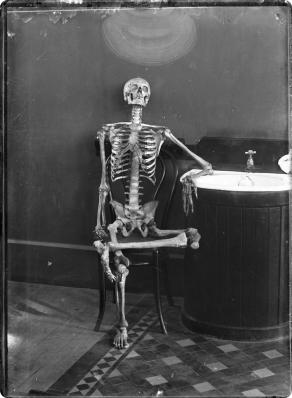This is the P2PU Archive. If you want the current site, go to www.p2pu.org!
Online Health Information: Beyond WebMD

Online Health Information: Beyond WebMD
My name is Amy, and I'm a medical librarian, working in a hospital library. I have my Master's in Library and Information Science, and have had several years of training and experience finding, evaluating, and teaching about health information. I spent 2 years as a National Library of Medicine Associate Fellow (post-graduate), where I learned a lot about consumer health. I'm excited about the P2PU model, and after taking courses the last 2 sessions, I felt it was time to contribute my own course back to the community in an area where I've got a little expertise. The beauty of the P2PU model is that it becomes really easy to learn from people all over the world as we share our unique experiences and backgrounds, and I'm excited to both share what I know and to learn about new resources as you take the tips I give you and apply them yourselves in ways I never thought about.
If you have any questions for me, feel free to post them in the comments! And you can learn more about me (like my other interests in ultimate frisbee and good beer) here:
http://www.google.com/profiles/amy.e.donahue#about
Summary
According to the Pew Research Center, "Eight-in-ten internet users look online for health information, making it the third most popular online pursuit among all those tracked by the Pew Internet Project" (http://pewresearch.org/pubs/1875/internet-health-topics-accessing-update...).
Today, more and more people are seeking out health information on their own, becoming active participants in their own (and their families') health care. And more and more health information is easily available on the internet. Unfortunately, not all of it is accurate, up-to-date, and/or appropriate. This course is designed to help you, as online "consumer health information" seekers, better navigate the rich world of internet health resources.
Who is an online consumer health information seeker?
- A daughter taking care of her aging parents
- A teenager wondering what the symptoms are after his teammate is diagnosed with an illness
- A middle-aged man at risk for high blood pressure
- A nurse/doctor/dentist looking for materials for her patients
- Anyone!
Throughout the course, we'll "meet" as a group on a regular basis to discuss various health information concepts, including health literacy, how to evaluate health information websites, specific online resources, personal health records, and finding health information on the social web (Twitter, Facebook, etc.). We'll focus on free and open resources, in the spirit of P2PU, from organizations like the National Library of Medicine. There will be exercises to help you become familiar with the material, a small "final project" to capture what you've learned, and a community of your peers who can contribute to and support your health information searching beyond the P2PU classroom.
A couple important notes:
- Always talk with your doctor about any information you find or questions you have. There is no subsitute for your clincian!
- Health information is often very personal and private; this course will never require that you reveal any personal health information. Rather, it will cover general concepts applicable to any health information topic.
Learning objectives
By the end of this course, you will be able to:
- Provide 1 or 2 general resources that are good, quick starting points for finding health information.
-
Locate free & trustyworthy health information on the Internet.
- Locate heatlh information in different languages, for different ages, for women/men, etc...
- Look at a health information resource and evaluate whether or not it is appropriate to use.
- Help others find and evaluate good health information resources.


Comments
I love this course idea! Are
I love this course idea! Are you going to provide any suggestions on how people can prevent getting freaked out while looking through the good and bad resources? :-)
I'm not sure if this is useful to your project at all, but I really like the Hesperian Foundation's series of collaboratively written manuals for healthcare: http://www.hesperian.org/publications_download.php
Thanks, Pippa. :) Thanks
Thanks, Pippa. :) Thanks for the suggestion (and will definitely incorporate it; first instinct is to emphasize that you need talk talk talk to your doctor, don't just sit there and worry, but I think some of my emphasis on consumer health-focused resources versus clinical tools like PubMed might fall under that category...I'll keep digging!)
And that's a great resource! I think I may have seen the books before, but I didn't know anything about who put them together. Definitely worth adding to at least a master list, and maybe during health literacy and/or the different language resources...
Fun things to think about; I love this stuff, that's why I chose this profession. Thanks for checking it out!
Nice post ,blog walking from
Nice post ,blog walking from indonesia facebook login